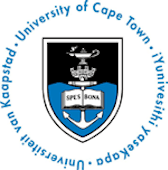Collet Dandara is a Professor of Human Genetics, Principal Investigator of the Pharmacogenomics and Drug Metabolism Research Group at the University of Cape Town. From the early days of his career, Professor Dandara’s research and publications focused on foundational studies in pharmacogenetics, and later pharmacogenomics, characterising genomes of African populations to identify genomic clues on differential drug responses observed in patients. His work has laid a firm basis on understanding the profile of genetic variants of pharmacogenomics importance in African populations, leading to novel discoveries as well as providing mechanistic understanding of the functional significance of such genetic variants and the networks they are involved in. The work by the Pharmacogenomics & Drug Metabolism Group has contributed to the understanding of the diversity of the genomes of African populations. Lately, cognisant of the wide use of traditional medicine, the group has started research on the pharmacogenomics of herbal medicines. Through his research, professor Dandara was nominated the Vice-Chair of the African Consortium of Pharmacogenomics (APC) in 2018; is a member of the African Society of Human Genetics (AfSHG); serves as a committee member of International Scientific Advisory Committee (ISAC) for the Human the Human Variome Project (HVP); is a member of the Global Genomic Medicine Collaboration (G2MC) Initiative and is on the working group of the Global Pharmacogenomics Network. Professor Dandara has authored more 140 publications in international journals and an H-index of 26 and an i10-index of 60. Professor Dandara serves on Editorial Boards of several international journals.
Experience
-
–presentProfessor, Division of Human Genetics, Department of Pathology,, University of Cape Town
Grants and Contracts
-
2019
- Role:
- Professor, Division of Human Genetics, Department of Pathology,
- Funding Source:
- National Research Foundation
- Article Feed
- Joined


